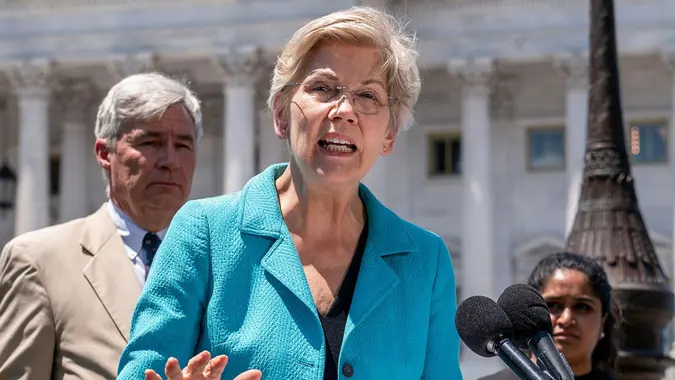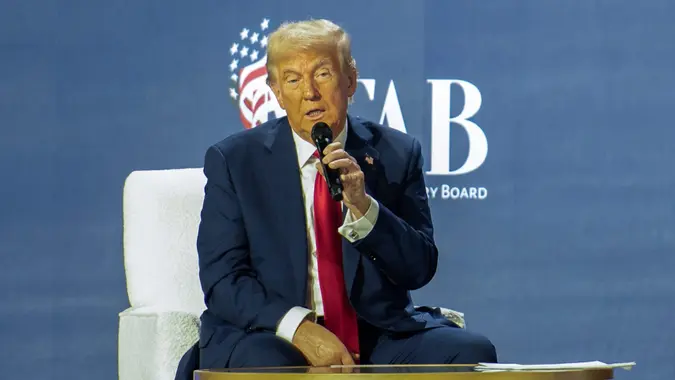Grant Cardone: How Do Politicians Making $100K Become Multimillionaires?

Commitment to Our Readers
GOBankingRates' editorial team is committed to bringing you unbiased reviews and information. We use data-driven methodologies to evaluate financial products and services - our reviews and ratings are not influenced by advertisers. You can read more about our editorial guidelines and our products and services review methodology.

20 Years
Helping You Live Richer

Reviewed
by Experts

Trusted by
Millions of Readers
Grant Cardone knows all about being rich — and poor. Although the famed real estate investor and entrepreneur is worth an estimated $600 million, a significant part of his childhood was spent in poverty. When Cardone graduated from college in 1981, he was $40,000 in debt.
Given his experience on both sides of the wealth spectrum, Cardone probably has a natural curiosity about why some people become rich and others don’t. That curiosity was shared with the public when Cardone asked on X, “Can someone explain to me how public servants (politicians) are becoming multi-millionaires on $100,000 salaries?”
What Public Servants Make $100,000?
Cardone didn’t provide further details on which public servants (and millionaires) he was referring to. Presumably, this was mainly meant for members of the U.S. Congress, as recent data shows, more than half of Congress are millionaires.
It is also unclear where Cardone got his $100,000 figure. The average annual salary of a rank-and-file Congressional member is $174,000. The Speaker of the House earns $223,500 a year, while the Senate President pro tempore and Majority and Minority leaders each earn $193,400.
Those are excellent salaries — and much higher than the figure Cardone tweeted — but they don’t necessarily turn you into a millionaire. What they do offer is a nice base to build upon if you plan to supplement your income while serving in Congress.
So, How Do Members of Congress Get Really Rich?
There’s nothing preventing Congressional members from earning incomes outside their official duties. However, there are restrictions. For example, they can’t earn more than 15% of the Level II of the Executive Schedule, which determines the pay scale of political appointees in the Executive branch. Members must also file disclosures detailing the source of both earned or passive income, such as stock dividends.
Stock investments are a likely source of income for many members of Congress, just as they are for the general public. However, a few years ago, economist Serkan Karadas found a “suspicious pattern” of Congressional members earning higher-than-average returns on their stock investments.
Karadas’ findings “suggested that at least some Congress members were profiting off their jobs.” This could come in the form of insider knowledge about upcoming policy changes or economic shifts that can potentially impact stock performance.
Though under ethics rules, members of the House and Senate are barred from earning more than roughly $30,000 in outside income from other jobs. However, one big workaround many have found includes big book deals and collecting royalties. For example, Democrats like Sen. Raphael Warnock of Georgia and Tim Kaine of Virginia, along with Republicans like Sen. Ted Cruz of Texas and Sen. Josh Hawley of Missouri, all have book contracts.
Real estate is another big money-maker for lawmakers. Property-owning Congress members can easily shift into absentee landlords to earn multiple passive income streams.
If you ignore the fact that many members are already independently wealthy or from affluent families, then you can focus on one of the biggest ways high-profile public servants make money, which is stock ownership. What makes this type of income a little iffy is that members of Congress have access to non-public information, and it has been claimed that many fail to report their trades within an appropriate timeline, which can definitely produce conflicting interests.
Caitlyn Moorhead contributed to the reporting for this article.
 Written by
Written by  Edited by
Edited by 

























